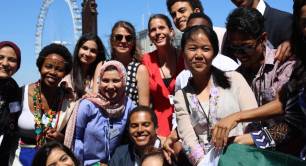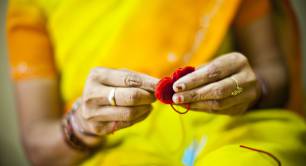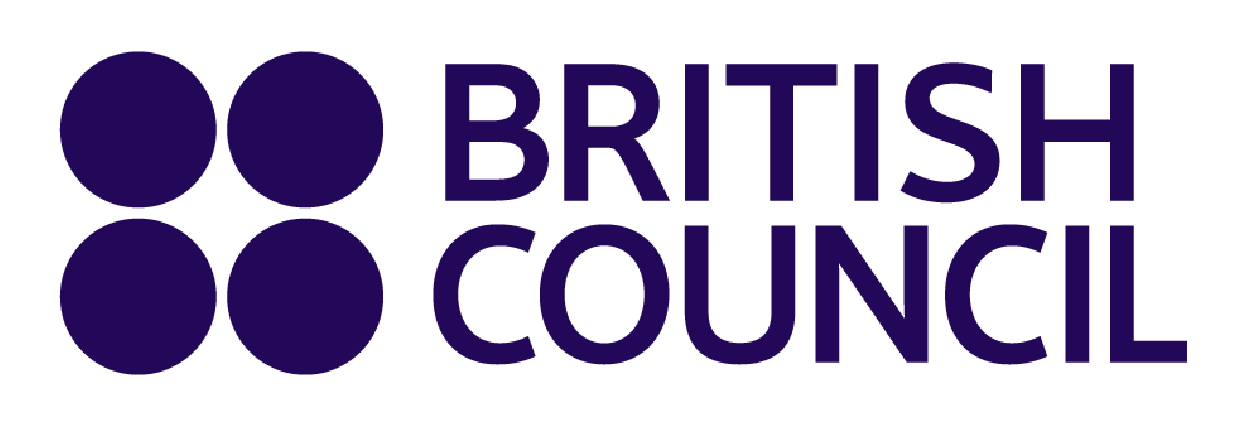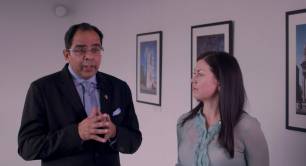Logging on for social enterprise
“I graduated top of my class. I am a professional medical laboratory scientist. I was about to sign a contract to work abroad when I was told that it was being withdrawn because I was disqualified for the job. The same happened with other jobs within the Philippines as well. There is a lot of stigma and discrimination.”
Ryan Gersava was part-way through his training when he was diagnosed with the disabling medical condition that has – at least for the moment – made it impossible for him to achieve his first aim of becoming a pathologist. Instead, Gersava, now 25, is the founder and CEO of social enterprise Virtualahan, which trains other people with disabilities and disabling conditions. As such, he was also one of the young leaders with disabilities supported by the British Council to attend the Global Disability Summit 2018 in London on 24 July, run in partnership with the Department for International Development (DfID) and International Disability Alliance (IDA).
Initially, he considered returning to the online work – market research, competitive analysis and business analysis outsourced from other countries – that had supported him throughout his training and which two of his siblings already work in. “It was not my dream, but it would have been a job.” Then he started thinking about other people who were facing the same level of discrimination but were not equipped to work that way. “I reviewed my process on how I’d become quite successful online. Someone else would need the skills, the tools and someone to teach them how to get a job.” From that, Virtualahan – the ‘virtual academy’ – was born.
“I talked first to my family, because my brother is the one who introduced the concept of online work to us all. I talked to other people about their route into home-based work too, and I started doing more research into health issues and disability.”
It was also important to operate as a social enterprise. “The whole idea of making your own money for social impact, rather than depending on someone to fund you, appealed. I’ve been involved with NGOs since I was a child, and one thing I don’t like is the idea of becoming professional beggars. I set up with some partners and found the first social enterprise incubator in the Philippines. In October we pitched our idea to the first social enterprise competition in the country and though we didn’t win we were in the top 10 grand finalists and it gave us the funding to set up a business. We registered the business and two weeks after the pitching we started our first cohort.”
Three years later, Virtualahan has become quite a complex entity and now operates entirely online. “We provide six weeks of digital skills training to enable people to participate in the digital economy; a two-week internship with people willing to mentor; and then three months of employment support with companies. With the employment there are three levels – directly hired by us, working for our own outsourcing company; working with one of our partner employers; or working for another employer, whom we’ve helped them find.”
Three-quarters (76 per cent) of the 162 people who have completed the training now have gainful employment, and the enterprise operates in 53 cities all over the Philippines. “It’s not just skills training,” Gersava adds. “We also provide life coaching and wellbeing sessions, led by in-house psychologists, so that trainees and their families can embrace their condition, make it part of their identity and know how to manage it.”
There have of course been challenges – not least the stage when Gersava and his colleagues (the enterprise now has 17 employees) found themselves without a physical office at all. Virtualahan now operates almost entirely digitally, with the exception of a monthly meeting focused on wellbeing; in fact around 60 per cent of the scholars who take part have never met in person.
Finance has, of course, also been an issue. “We have to work with a cross-subsidy, pay it forward model,” Gersava explains. Each scholar commits to sponsoring someone else – which also works as an added motivation for going into employment. Overall, Virtualahan is not making money yet, but it is breaking even.
“I came to the summit because I wanted to help put the Philippines and the voices of people with disabilities into the global arena, especially from a social enterprise perspective,” Gersava concludes.
Kate Dempster, Senior Civil Society and Governance Adviser at the British Council, explains that the British Council is currently developing an understanding of the role of social enterprise in delivering inclusion for people with disabilities. She adds: “Social enterprise is playing a very significant role, but it’s not well understood globally… It’s an untapped area.
“Social entrepreneurs with disabilities and disability social enterprises are not appropriately included in international economic development strategies which means their potential is untapped, there is a lack of data about the sector and they don’t access support.”
Gersava adds: “What we have seen works is investing in social enterprise. However, if you are going to make it work you need to make the venture personal – and you need to work with the community. One of our key successes is because we involve people in the decision-making process. Social enterprise is now a trend and I see people trying to find communities they can work with just as a beneficiary, but we are working with people’s hopes and dreams – you can’t experiment as you could with another business. They have been through a lot already and although they are resilient you cannot restore those losses. Don’t do it unless you believe in it.”
Find more information about the Global Disability Summit on the event’s website.



 Pioneers Post is working in partnership with the British Council to bring you insights and inspiration about social enterprise in action across the world through the Global Perspectives Collection.
Pioneers Post is working in partnership with the British Council to bring you insights and inspiration about social enterprise in action across the world through the Global Perspectives Collection. 